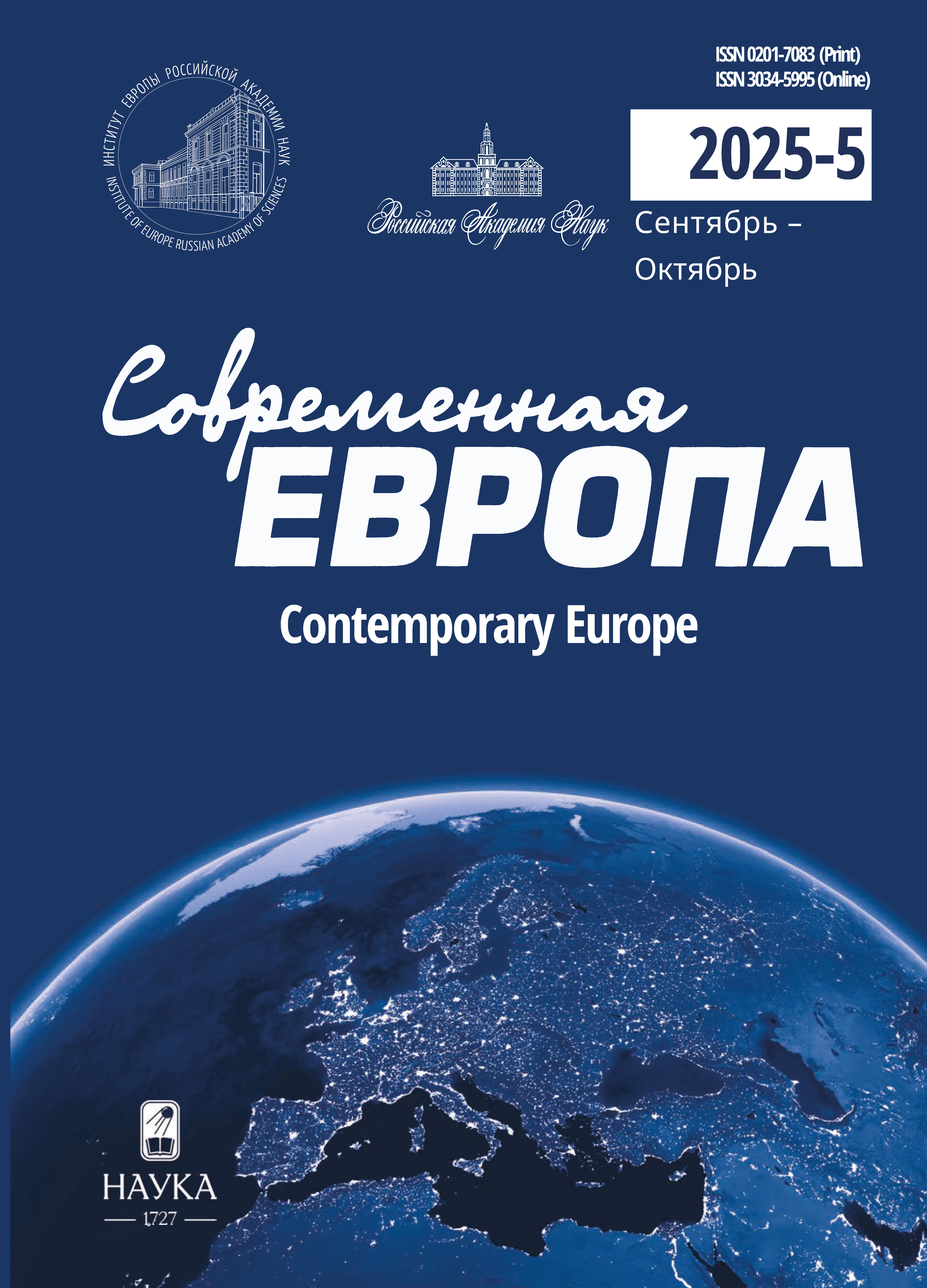Social inequality: the modern risc society
- Authors: Lunkin R.N.1
-
Affiliations:
- Institute of Europe Russian Academy of Sciences
- Issue: No 7 (121) (2023)
- Pages: 176-191
- Section: Articles
- URL: https://rjsvd.com/0201-7083/article/view/652182
- DOI: https://doi.org/10.31857/S0201708323070148
- EDN: https://elibrary.ru/RWWTHD
- ID: 652182
Cite item
Abstract
The article analyzes the problem of social inequality in modern society on the example of the countries of the European Union. The main challenges of social transformations are considered using the concept of risk society. The possession of one or another type of capital in the social field (mostly related to talents and skills) generates differences and, ultimately, existential inequality, when some people have the opportunity to live in an inclusive society, while others do not. In this regard, modern states face the question of what new challenges are created by the previous forms of social inequality in the context of technological shifts. It is concluded that the combination of new and old inequalities with technological transition has led to the emergence of a new risk associated with what can be called civil exclusion by analogy with social exclusion. This risk is associated partially with the displacement of a part of society from the production of a common goods or products. The main challenge of modern society has become the formation of a deeply divided society, where citizens differ not only in terms of income, but also in their skills, abilities, opportunities for self-realization in professional, creative, technological senses. Civil rejection also leads to the correction of democratic mechanisms, within which those dissatisfied with the new way of life are marginalized.
Keywords
About the authors
Roman Nikolaevich Lunkin
Institute of Europe Russian Academy of Sciences
Email: romanlunkinn@yandex.ru
Moscow, Russia
References
- Бек У. (2000) Общество риска: На пути к другому модерну. Пер. с нем. В. Седельника, Н. Федоровой. Прогресс-Традиция, Москва. 383 с.
- Биссон Л.С., Лункин Р.Н. (2021) Контуры новых социально-политических кливажей в странах ЕС. Общественные науки и современность. № 6. C. 7-23. doi: 10.31857/S086904990017872-1
- Европа в кризисном мире (2022) Отв. ред. Ал.А. Громыко. ИЕ РАН, Издательство "Весь Мир", Москва. С. 192-249.
- Бурдьё П. (1993) Социология политики: Пер. с фр. Сост., общ. ред. и предисл. Н.А. Шматко. Socio-Logos, Москва. 336 с.
- Капелюшников Р.И. (2019) Экономическое неравенство - вселенское зло? [Текст]: препринт WP3/2019/01. Нац. исслед. ун-т "Высшая школа экономики". Изд. Дом Высшей школы экономики, Москва. 28 с.
- Куракин Д. (2020) Трагедия неравенства: расчеловечивая "тотального человека". Социологическое обозрение. Т. 19. № 3. С. 167-231. doi: 10.17323/1728-192x-2020-3-167-231. EDN HFUIZM.
- Мартыненко Т.С. (2018) "Трансформация социального неравенства в "эпоху доступа" Вестник Томского государственного университета. Философия. Социология. Политология. № 43. С. 161-170.
- Осипова Н.Г. (2019) Социальное неравенство в современном мире. Вестник Московского университета. Серия 18. Социология и политология. № 25(4). С. 124-153. https://doi.org/10.24290/1029-3736-2019-25-4-124-153
- Пикетти Т. (2015) "К политической и исторической экономии. Размышления о капитале в XXI веке". Экономическая история. № 4(31). С. 7-19.
- Семененко И.С., Лапкин В.В., Пантин В.И. (2021) Социальные размежевания и политические противостояния в современном научном дискурсе. Полис. Политические исследования. № 5. С. 56-77. doi: 10.17976/jpps/2021.05.05.
- Социальное неравенство в современном мире: новые формы и особенности их проявления в России. (2021) Под ред. Н.Г. Осиповой. Перспектива, Москва. 276 c.
- Удовенко И. (2023) Социальная политика и экосистемы государственного управления. Мировая экономика и международные отношения. Т. 67. № 9. С. 129-138. https://doi.org/10.20542/0131-2227-2023-67-9-129-138 EDN: SJOMYP
- Allmendinger, Jutta. von den Driesch, Ellen (2014) Social inequalities in Europe: Facing the challenge, WZB Discussion Paper, No. P 2014-005, Wissenschaftszentrum Berlin für Sozialforschung (WZB), Berlin. URL: https://www.econstor.eu/bitstream/10419/103956/1/800451910.pdf
- Rifkin J. (2000) The Age of Access: the New Culture of Hypercapitalism, Where All of Life is a Paid-for Experience. New York: J.P. Tarcher/Putnam.
Supplementary files











